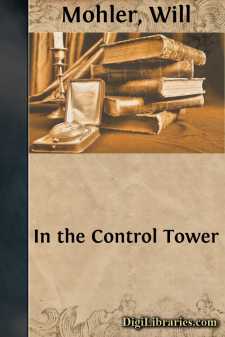Categories
- Antiques & Collectibles 13
- Architecture 36
- Art 48
- Bibles 22
- Biography & Autobiography 813
- Body, Mind & Spirit 142
- Business & Economics 28
- Children's Books 17
- Children's Fiction 14
- Computers 4
- Cooking 94
- Crafts & Hobbies 4
- Drama 346
- Education 46
- Family & Relationships 57
- Fiction 11829
- Games 19
- Gardening 17
- Health & Fitness 34
- History 1377
- House & Home 1
- Humor 147
- Juvenile Fiction 1873
- Juvenile Nonfiction 202
- Language Arts & Disciplines 88
- Law 16
- Literary Collections 686
- Literary Criticism 179
- Mathematics 13
- Medical 41
- Music 40
- Nature 179
- Non-Classifiable 1768
- Performing Arts 7
- Periodicals 1453
- Philosophy 64
- Photography 2
- Poetry 896
- Political Science 203
- Psychology 42
- Reference 154
- Religion 513
- Science 126
- Self-Help 84
- Social Science 81
- Sports & Recreation 34
- Study Aids 3
- Technology & Engineering 59
- Transportation 23
- Travel 463
- True Crime 29
Our website is made possible by displaying online advertisements to our visitors.
Please consider supporting us by disabling your ad blocker.
In the Control Tower
by: Will Mohler
Categories:
Description:
Excerpt
Dewforth had almost most lost the habit of looking from windows. The train which took him to the city every morning passed through a country in the terminal stages of a long war of self-destruction. Whatever had been burned, botched, poisoned or exhausted in that struggle had been filled along the right-of-way, among drifts of soot and ground-mists of sulphurous smoke and chemical flatulence, to form a long tedious mural—a parody of cloud-borne Asiatic hills, precipitous and always so close to the tracks that their tops could not be seen.
This was almost merciful, considering what had been done to the sky. When the train did not sneak between hills of slag, cinders, rubbish, garbage, dross and the bloody brown carrion of broken machinery, it shot like a bolt in the groove of an arbolest between unbroken barriers of advertising or through deep concrete troughs and roaring tunnels full of grimy light and grubby air.
There was one inconsistancy in this scheme of things: Just as the train emerged from a deep valley of slag-hills and swung into a long curve, passengers on the left side had a panoramic view of the city—a frozen scene of battle between geometrical monsters, made remote and obscure by the dust of a thousand thousand merely human struggles, too small to be visible from the crusty windows of the train by the merely human eye. They had about one second in which to absorb this vision of corporate purpose. Then they were plunging into a final stretch of tunnel to the center of the city itself, where no surface was ever more than fifteen paces away and where there were no horizons at all.
Dewforth was excited by this view even though it reached him in a fragmentary and subliminal way. Day after day he told himself that he would have all his faculties at the ready before the train swung into the curve. But morning after morning he was still emerging from the stale fumes of the preceding night's beer, or he allowed himself to be hypnotized by the sound of the wheels or fascinated by the jiggling of another passenger's earlobe at that critical moment. The train had always entered the clangorous colon of the city before this resolve could crystallize in his mind, and he was left with an impression which lay somewhere in the scale of reality between the after-image of a light bulb and the morning memory of a fever-dream. He could never have described the scene except in loose generalities about buildings of contrasting height and unemphatic color.
The single memorable feature of the panorama, looming above the rest, was not even a building. It eluded all familiar categories. It was, like the other components of the picture, rectangular; but it was a displaced rectangle. A shining thread of morning sky could be seen beneath it. It was only logical to suppose that it stood on legs of some kind—a complicated process of girders. The upper part appeared to be made of corrugated metal, but, as with the matter of the legs, it was impossible to separate what was actually seen and what was merely inferred. The only other structures Dewforth had seen which resembled it at all were water towers and shipyard cranes, but these had been mere toys compared with the thing that hovered over the center of the city.
Its purpose could not be guessed, but what disturbed Dewforth more was the fact that he could not be sure that it existed. He was a precision draftsman, more or less resigned to deteriorating eyesight, and his usual abstracted state of mind during that segment of his day had also to be considered....


